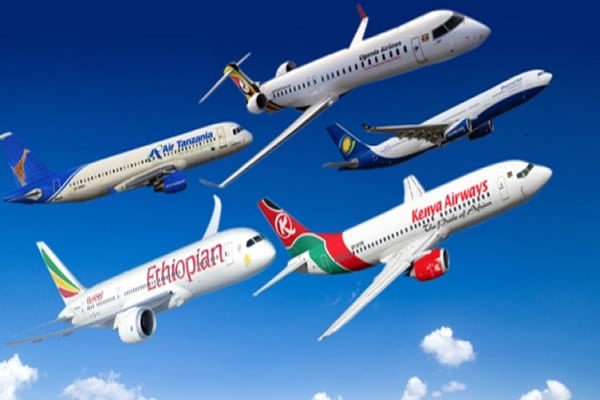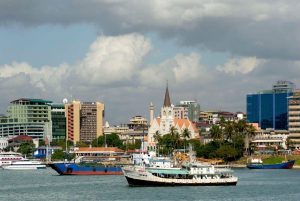Africa’s airline industry flies in the context of a big dilemma as most are in the loss-making zone or near-collapse despite an almost impossible environment to consolidate their operations and trim losses.
Various carriers from across the continent are now expressing willingness to join hands as the magic trick that could cut operation costs, streamline governance and increase profitability, but the many barriers appear heavy for realisation of this dream.
Last month, a workshop bringing together a group of airlines from around the continent to reflect on why Africa has had few partnerships and limited airline consolidation, exposed huge gaps that have made it impossible for carriers, a tactic that has been adopted by the industry on other continents.
Players blamed political differences, regulatory unfriendliness towards the industry and corruption among the main factors hampering Africa’s carriers from coming together.
“The aviation sector is reeling from the impacts of Covid-19 pandemic. We need to devise new approaches of doing business in the face of increasing concerns on the sustainability of African airlines. A crucial element in the success of the African airlines is consolidation and collaboration. The engagement of States, airlines and all the relevant stakeholders is necessary to effectively achieve the required outcomes on airline consolidation in Africa,” said African Airlines Association (Afraa) Secretary General, Mr Abdérahmane Berthé.
Kickbacks
His call came as other stakeholders highlighted the many challenges African airlines undergo even from within the continent, as many jurisdictions still remain rigid, which has been extended to global airlines from other regions.
Stakeholders complain that governments are riddled with red tape, where airlines’ efforts to expand to such markets are always frustrated as some regulators ask for kickbacks.
“The governments are putting too much resistance on partnerships with African airlines. We have also witnessed cases of leaders asking for delay of flights, seeking favours for their relatives to be employed and some countries were not open to providing traffic lights. It took us one year to obtain an operating license to Dakar, Senegal,” said Busera Awel, Ethiopian Airlines’ Group vice president in charge of strategic planning and alliances, while explaining challenges the airline has faced in its expansion drive.
Yet the continent’s airline industry controls only two per cent of global air traffic, according to Afraa, despite the huge potential it portends with most of the African markets exhibiting fastest growths.
Afraa also reports that Africa’s passenger traffic has consistently grown over the past decade and before Covid-19 was projected to hit 3.4 per cent on average over the next two decades. In 2019, African airlines carried 95.6 million passengers, which dropped by 63.7 per cent after the onset of Covid-19 last year.
Before the pandemic, the continent’s passenger operations were 20 per cent intra Africa, 38 per cent domestic and 42 per cent intercontinental.
Last year domestic operations took the leading role as jurisdictions across the world placed strict measures to limit movement, with 43 per cent against intercontinental operations that constituted 38 per cent of the industry’s operations.
“Experience has shown that well-executed consolidation is among the building blocks of a resilient and sustainable business operation. The ripple effect of strengthened collaboration and partnerships of airlines will increase the industry’s contribution to sustainable development in Africa and of course the longevity and the stay of this industry in the continent,” said Mr Allan Kilavuka, the Kenya Airways (KQ) managing director.
Stakeholders tabled consolidation options such as operating on an interline agreement, codeshare, global alliance, joint venture through pooling revenues and costs, equity partner where one airline buys stake in another and merger, which provides for unified management of all commercial operations.
Data has shown that market share and profitability of consolidated airlines has consistently increased overtime, and that Africa remains the least consolidated of the aviation markets.
But borrowing from challenges experienced by collapsed airlines that attempted consolidation in the continent and at least issues raised by Ethiopian Airlines- one of the best performing in Africa, the cure for the African airline problem lies beyond the industry, since it will require governments’ cooperation and strong financial and governance support.
For instance, Air Afrique which was a consolidated airline formed by at least 11 West African countries and which operated between 1964 and 2002, collapsed because of heavy political interference, despite having improved connectivity, socio-economic integration, tourism and fast tracked development in member States.
“I believe that the concept of Air Afrique as a multinational remains relevant to date, but political interference is something to watch. This is to be achieved through appropriate governance structure,” said CDA Aviation CEO Chamsou Andjorin.
Regions such as North America and Middle East whose airline markets are highly consolidated are reported to operate cost-effectively with dominant market shares, while Africa which is least consolidated is ranked the worst.
Financing a project to consolidate African airlines would also be a big headache for the continent were it to take that route, since banks have set strict requirements- including the project’s financial viability and an assessment of individual airlines’ financial health. Most of the airlines in the continent operate on losses and have been kept alive by government bailouts.
Feasibility studies
AU has called on banks to finance feasibility studies on the project.
Even as this happens, various airlines continue to form partnerships in their individual capacities to boost their chances of survival, while pointing to the possibility that a pan African airline group could be in the offing.
Just days ago, KQ entered into a cooperation agreement with the South Africa Airways (SAA) to boost passenger traffic, cargo opportunities and general trade.
But a statement by the airlines also indicated that the deal was “with a longer-term view to co-starting a pan-African Airline Group that in time will enhance mutual growth potential between the two carriers.”
Mr Romain Ekoto, the African Development Bank (AfDB’s) Chief Aviation officer; Infrastructure and Urban Development, however notes that even though the bank would play a critical catalytic role in easing the industry’s access to financing and spearhead a feasibility study, clear commitment and guarantee from governments and the financial health of airlines would be a crucial thing to consider before the bank putting its money into such a huge project.
Source: Nation






